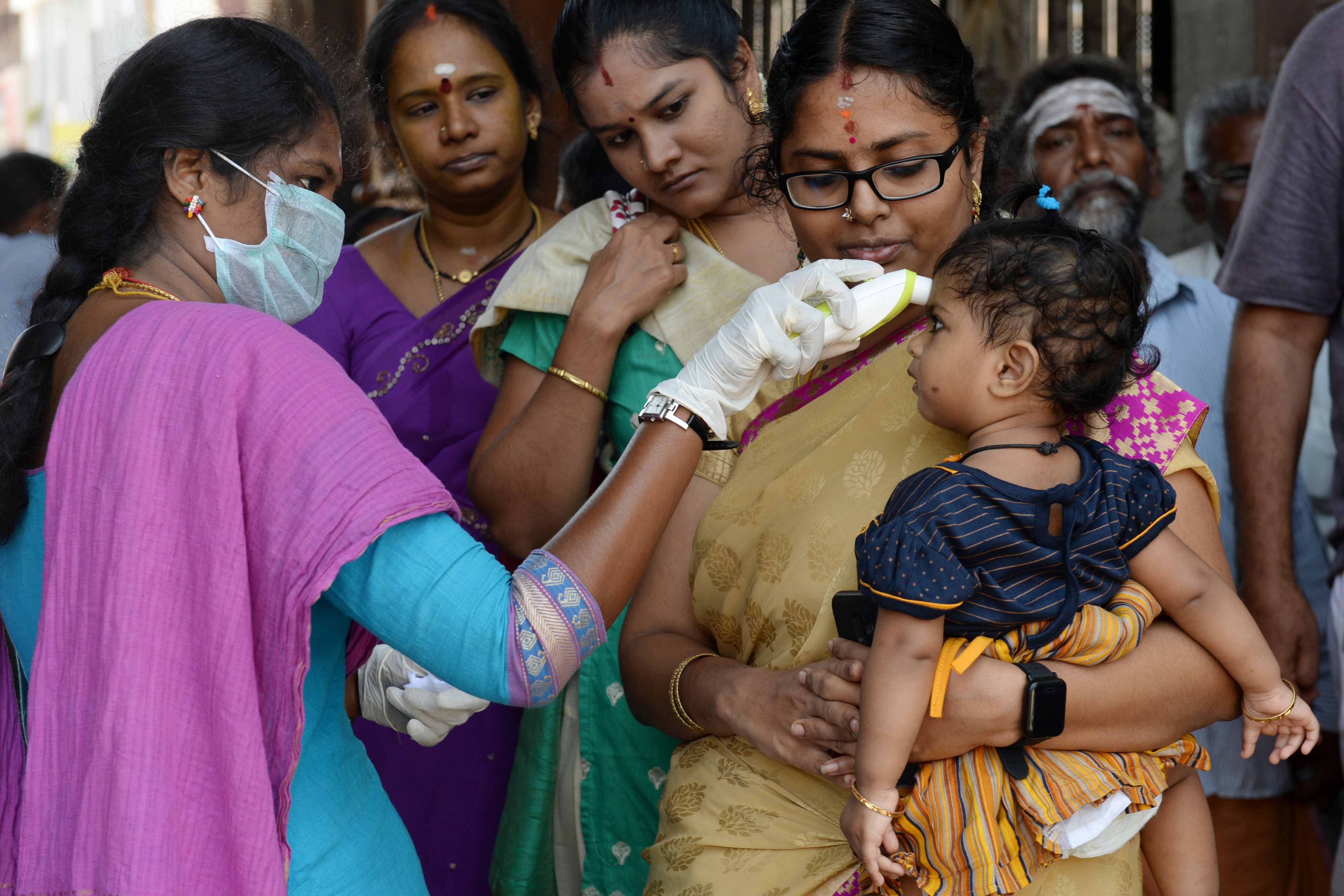Why India so far seems to staved off the coronavirus


A free daily email with the biggest news stories of the day – and the best features from TheWeek.com
You are now subscribed
Your newsletter sign-up was successful
The jury is still out on whether the world's second most populous nation can hold off the coronavirus pandemic, but so far at least, India has kept things at bay, The New York Times reports.
"I have been quite impressed with India," Dr. Henk Bekedam, the World Health Organization representative in India, said. "From the onset they've been taking it very seriously."
To date, India only has 125 confirmed cases, which pales in comparison to many of the world's other populous nations. Some of that does seem to be the result of swift action — state authorities, for example, used an onslaught of surveillance techniques to find about 1,000 people who came into contact with a family that returned from Italy in February and quarantined everyone. The government also shut borders, canceled visas, and denied entry to many foreigners, while some states have strengthened internal borders and screened passengers in cars and trains, per the Times.
The Week
Escape your echo chamber. Get the facts behind the news, plus analysis from multiple perspectives.

Sign up for The Week's Free Newsletters
From our morning news briefing to a weekly Good News Newsletter, get the best of The Week delivered directly to your inbox.
From our morning news briefing to a weekly Good News Newsletter, get the best of The Week delivered directly to your inbox.
At the same time, experts worry the number of cases is actually much higher because of limited testing, and not everyone is sure the government responded in a timely fashion, especially because people are still out and about in major cities like New Delhi. "The challenge of a large country like India with overcrowding is that some people will always slip the net, wherever you put it," said Dipanjan Roy, an Indian epidemiologist, who added that not putting harsher quarantines into effect even earlier may have cost the country.
Still, some experts are hopeful that India has a few other advantages up its sleeve, including the normally-frowned-upon prevalence of antibiotics dispensed without a prescription, the country's youthful demographics, increased testing, and the unproven possibility of warm weather halting the virus. Read more at The New York Times.
A free daily email with the biggest news stories of the day – and the best features from TheWeek.com
Tim is a staff writer at The Week and has contributed to Bedford and Bowery and The New York Transatlantic. He is a graduate of Occidental College and NYU's journalism school. Tim enjoys writing about baseball, Europe, and extinct megafauna. He lives in New York City.
-
 Corruption: The spy sheikh and the president
Corruption: The spy sheikh and the presidentFeature Trump is at the center of another scandal
-
 Putin’s shadow war
Putin’s shadow warFeature The Kremlin is waging a campaign of sabotage and subversion against Ukraine’s allies in the West
-
 Media: Why did Bezos gut ‘The Washington Post’?
Media: Why did Bezos gut ‘The Washington Post’?Feature Possibilities include to curry favor with Trump or to try to end financial losses
-
 Pope aide under fire for 'mystical orgasms' book
Pope aide under fire for 'mystical orgasms' bookTall Tales And other stories from the stranger side of life
-
 Thieves who stole shopping bag in for big disappointment
Thieves who stole shopping bag in for big disappointmentTall Tales And other stories from the stranger side of life
-
 Woman has one in 50 million pregnancy
Woman has one in 50 million pregnancyTall Tales And other stories from the stranger side of life
-
 Nobody seems surprised Wagner's Prigozhin died under suspicious circumstances
Nobody seems surprised Wagner's Prigozhin died under suspicious circumstancesSpeed Read
-
 Western mountain climbers allegedly left Pakistani porter to die on K2
Western mountain climbers allegedly left Pakistani porter to die on K2Speed Read
-
 'Circular saw blades' divide controversial Rio Grande buoys installed by Texas governor
'Circular saw blades' divide controversial Rio Grande buoys installed by Texas governorSpeed Read
-
 Los Angeles city workers stage 1-day walkout over labor conditions
Los Angeles city workers stage 1-day walkout over labor conditionsSpeed Read
-
 Mega Millions jackpot climbs to an estimated $1.55 billion
Mega Millions jackpot climbs to an estimated $1.55 billionSpeed Read
